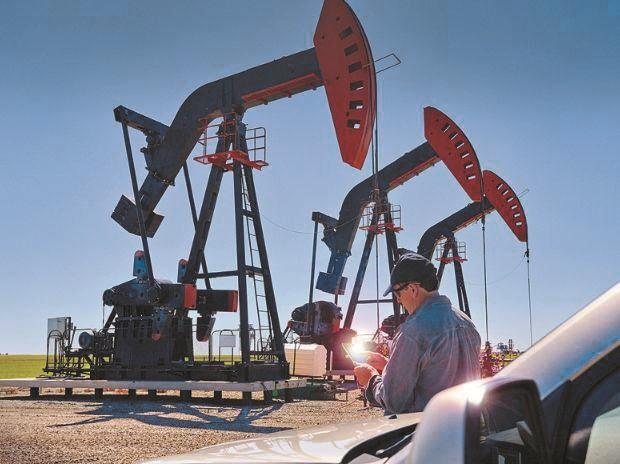Saudi Arabia plans to increase oil output in the coming months, reversing a recent production cut, the Wall Street Journal reported on Wednesday, citing advisers to the country.
The world’s largest oil exporter surprised oil markets last month when it said it would unilaterally slash 1 million barrels a day of crude production in February and March in an effort to raise prices.
Saudi Arabia is expected to announce its plans when a coalition of oil producers meets next month, according to the WSJ report, adding that the output rise won't kick in until April.
But Saudi Arabian Energy Minister Prince Abdulaziz bin Salman said on Wednesday that it was too early to declare victory against the Covid-19 virus and that oil producers must remain "extremely cautious".
"We are in a much better place than we were a year ago, but I must warn, once again, against complacency. The uncertainty is very high, and we have to be extremely cautious," he told an energy industry event.
The stronger price environment has put more attention on OPEC+, which groups OPEC, Russia and allied producers. It meets to set policy on March 4.
OPEC+ oil producers are likely to ease curbs on supply after April given a recovery in prices, OPEC+ sources told Reuters.
"We believe that OPEC+ will likely take a more conservative approach, and ease output more modestly," said ING analyst Warren Patterson.
US oil inventory data from the American Petroleum Institute and the US Energy Information Administration (EIA) will be released on Wednesday and Thursday respectively, a one-day delay for each after this week's US holiday.
Analysts polled by Reuters estimated, on average, that crude stocks fell 2.2 million barrels in the week to February 12.
According to the WSJ report, the planned Saudi move to restore supplies isn’t expected to immediately spark large output increases from other big producers, analysts say, given the kingdom is acknowledged to have carried the biggest burden in reducing production.
However, analysts do expect compliance with output curbs among producers to be increasingly loose as the recovery gains momentum, says the news article.
Saudi’s move to reopen the spigots, while the rest of the group keeps them tight, comes as global demand for oil is expected to recover in the coming months.
 Dear Reader,
Dear Reader,
Business Standard has always strived hard to provide up-to-date information and commentary on developments that are of interest to you and have wider political and economic implications for the country and the world. Your encouragement and constant feedback on how to improve our offering have only made our resolve and commitment to these ideals stronger. Even during these difficult times arising out of Covid-19, we continue to remain committed to keeping you informed and updated with credible news, authoritative views and incisive commentary on topical issues of relevance.
We, however, have a request.
As we battle the economic impact of the pandemic, we need your support even more, so that we can continue to offer you more quality content. Our subscription model has seen an encouraging response from many of you, who have subscribed to our online content. More subscription to our online content can only help us achieve the goals of offering you even better and more relevant content. We believe in free, fair and credible journalism. Your support through more subscriptions can help us practise the journalism to which we are committed.
Support quality journalism and subscribe to Business Standard.
Digital Editor

RECOMMENDED FOR YOU